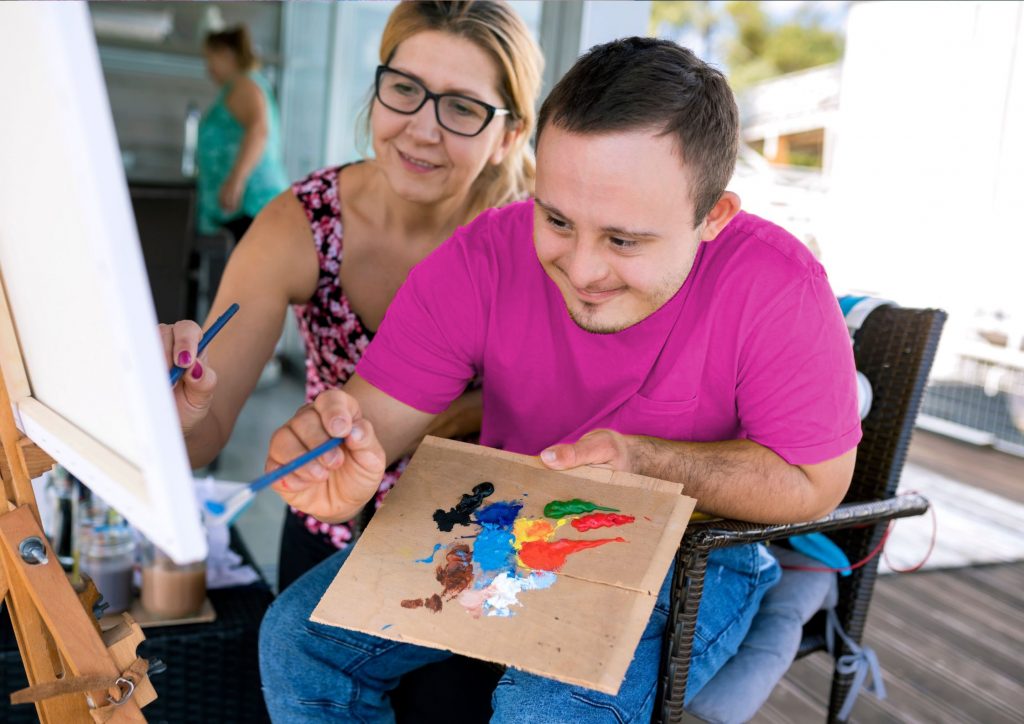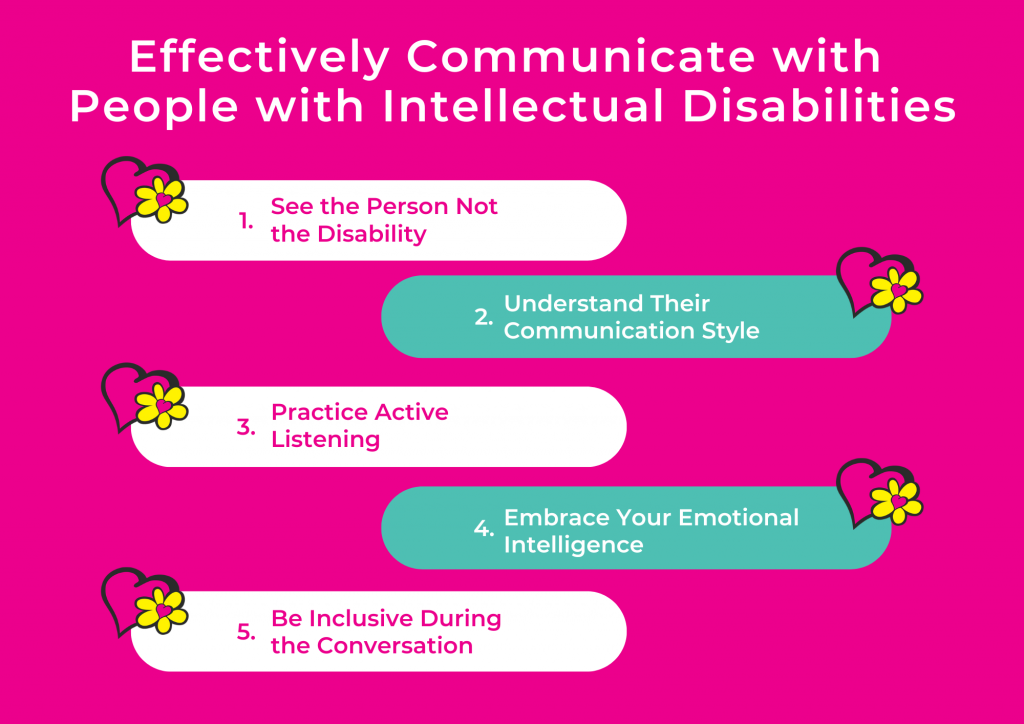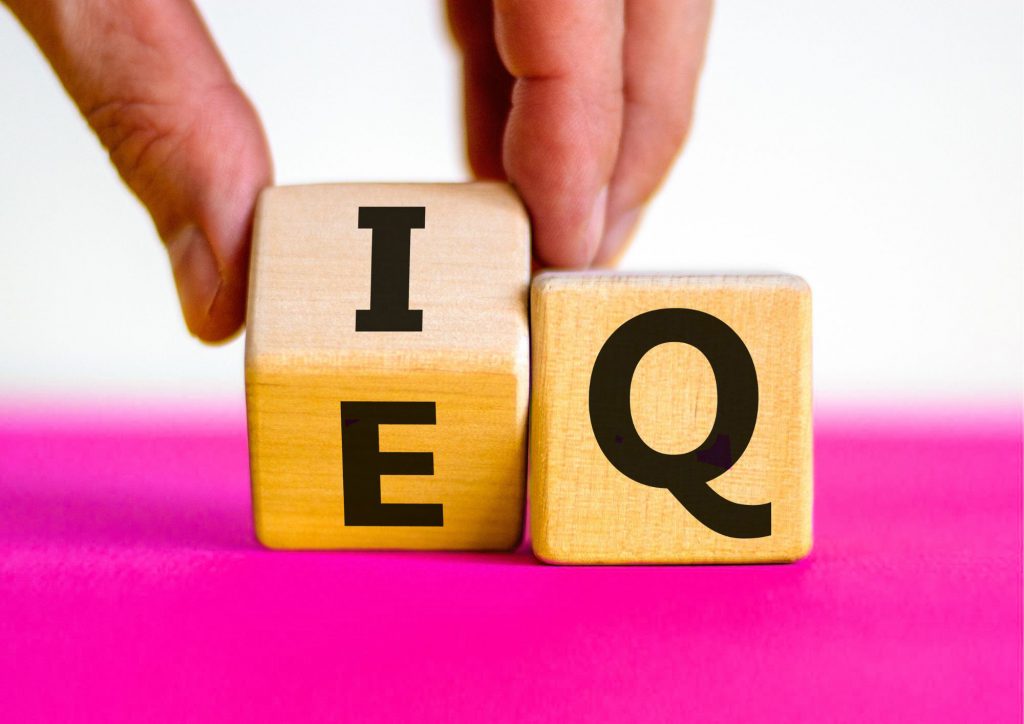How to Communicate with People with Intellectual Disabilities
“Inclusion is not bringing people into what already exists; it is making a new space, a better space for everyone,” – George Dei
When many people think about the word ‘disability’ usually a wheelchair comes to mind, the universal symbol for disability, others might picture a walker or even a guide dog. This is just a small part of the wider community.
Did you know that there are currently 450,000 people living with intellectual disabilities in Australia?
Intellectual disabilities are more common than many people think. This blog will help you not only better understand what intellectual disabilities are but also how you can empower people with intellectual disabilities to confidently communicate with you and support them continue confidently building interpersonal relationships with wider society.
1. What is an Intellectual Disability?
2. What Causes an Intellectual Disability?
3. Common Types of Intellectual Disabilities
4. How to Effectively Communicate with People with Intellectual Disabilities


What is an Intellectual Disability?
A person with an intellectual disability may experience limitations with certain mental abilities that can affect cognitive function and skills in two areas:
Intellectual Functions:
Intellectual functions that can be affected in a person who lives with an intellectual disability can include:
- Learning
- Problem-Solving
- Judgement
Adaptive Functions:
Adaptive functions that can be affected in a person who lives with an intellectual disability can include:
- Communication
- Activities in Daily Living
- Independent Living


What Causes an Intellectual Disability?
There are many reasons a person may have an intellectual disability. This can sometimes occur as a result of injury or disease that changes how the brain functions. A majority of intellectual disabilities, however, are developmental and can start before birth or very soon after. Some of the most common causes are:
Genetic Conditions
Sometimes, intellectual disabilities can be caused by certain genes which are inherited from parents, errors when genes attempt to combine or other reasons. An example of genetic conditions can include Down syndrome, or Fragile X syndrome.
Complications During Pregnancy
If a baby does not develop properly inside the womb, this can cause the child to develop an intellectual disability, for example, the cells don’t divide properly. Similarly, if the mother drinks alcohol or gets an infection during pregnancy, this can affect the baby’s development and result in an intellectual disability.
Problems During Birth
If there are complications during the labour and birthing process, for example, the baby doesn’t receive enough oxygen to the brain, it may result in them developing an intellectual disability.


Diseases or Toxic Exposure
Diseases such as whooping cough, measles, or meningitis which affects the brain, can cause the child to develop an intellectual disability. Intellectual disabilities can also occur if any person experiences extreme malnutrition, doesn’t receive appropriate medical care, or is exposed to poisons like lead or mercury.
It is vital to understand that intellectual disabilities are not contagious and are not a type of mental illness. There are no cures for intellectual disabilities but many people who experience them can still learn and do many things, they just might take more time or will learn differently from other people.
Common Types of Intellectual Disabilities
There are many different types of intellectual and developmental disabilities, but some are more common disabilities include:
Fragile X Syndrome
Fragile X syndrome is caused when the X chromosome changes its structure and can result in a wide range of physical, developmental, behavioural and emotional difficulties however, the severity of each condition can vary.
Some common signs of Fragile X syndrome can include a developmental delay, communication difficulties, anxiety, ADHD and behaviours that are similar to autism such as difficulty processing sensory information, difficulty with social interactions or poor eye contact.
Down Syndrome
Down syndrome, another common intellectual disability, is caused when an individual carries an extra copy of chromosome 21 in their DNA.
People with Down syndrome can have a range of common physical and developmental traits as well as an increased risk of respiratory and heart conditions. Down syndrome is also one of the most common causes of children developing a learning disability.


Developmental Delay
If a child develops slower than other children of the same age, they may be showing signs of developmental delay.
Some areas of development that may be affected include the ability to move, learn, communicate, or interact with others. Children with developmental delays may start to progress faster as they age, but in some cases, the delay may be more significant and can also affect their learning and education.
Fetal Alcohol Syndrome
Fetal alcohol syndrome is an intellectual disability that is caused by women who expose themselves to alcohol consumption during pregnancy. The severity of this disability can range depending on the amount the child is exposed to.
Some of the traits a child with fetal alcohol syndrome can have may include poor memory and judgement, learning disabilities, poor social skills, difficulties in vision, hearing impairment, behavioural challenges or slow physical growth.
People with intellectual disabilities are just like everyone else, and they want to be treated with the same fairness, and respect as everyone else.
So, how do you talk to people with intellectual disabilities?
5 Tips to help you Effectively Communicate with People with Intellectual Disabilities
Whether you’re in a professional setting or just having a personal conversation, it is important to understand that all communication needs to be done in a compassionate and caring way. Here are 5 ways to help you talk to a person with an intellectual disability:
1. See the Person Not the Disability
2. Understand Their Communication Style
3. Practice Active Listening
4. Embrace Your Emotional Intelligence
5. Be Inclusive During the Conversation


1. See the Person Not the Disability
People with intellectual disabilities are just like us and have the desire to build interpersonal relationships, they do not want to be defined by their abilities, but by who they are as a person.
- They all have their own individual identity
- They feel the same emotions as we do
- They will have personal interests and hobbies
- They will experience romantic relationships
- They will have goals, dreams and desires
You don’t need to change your personal behaviour when interacting with someone who has an intellectual disability. Avoid making assumptions about their communication style from the get-go, and build a level of understanding first. Being empathetic, open-minded and respectful throughout the entire interaction.
2. Understand Their Communication Style
Intellectual disabilities can vary from person to person so it’s important to understand the person you are speaking to first and if necessary adapt your own pace and communication style to match their vocabulary and level of understanding for more effective communication. Depending on the disability, you might need to implement an alternative communication style as needed, rather than the spoken word, some examples may include:
- Sign language
- Written Text
- Visual Cues
- Communication Devices
People with intellectual disabilities should not be treated like children just because they may have a different style of communicating so, avoid making assumptions before you start the conversation. You might need to use simplified language and speak slowly to help the person understand what message you are trying to send. Speaking louder is not necessary and could make the recipient feel uncomfortable, using your normal pitch and tone as well as making eye contact (as you would with anyone you are speaking to) is vital.


3. Practice Active Listening
When listening to a person with an intellectual disability, it is encouraged that you use active listening techniques to let them know you are engaged in the conversation Some things you can do to reassure them that they have your undivided attention include:
- Using open body language
- Looking at them directly
- Showing them you are listening through non-verbal reactions (eg. nodding)
- Deferring any judgements you might have
- Responding when it is appropriate
Communication requires both people to be engaged in the conversation so, be patient and give the person the time to express themselves.
4. Embrace Your Emotional Intelligence
Being effective with your communication style when talking to someone with an intellectual disability also requires you to embrace your own emotional intelligence.
Emotional intelligence (otherwise known as emotional quotient or EQ) is the ability to understand, use, and manage your own emotions in positive ways to relieve stress, communicate effectively, empathise with others, overcome challenges and defuse conflict.
You can empower a person with an intellectual disability to keep confidently communicating with you during an interaction, by using your emotional intelligence to:
- Encourage them to elaborate
- Encourage clarification if required
- Accept that we are all vulnerable
- Separate the criticisms you might hold (even if they are unintentional)
When the opportunity comes for you to hold your next conversation with a person who has an intellectual disability it’s important to stay calm and above all show empathy if you need to adapt your own communication style.


5. Be Inclusive During the Conversation
People with intellectual disabilities also have a voice, they want to express their thoughts, feelings and opinions whether it’s through non-verbal or verbal communication.
When interacting and communicating with a person who has an intellectual disability, it’s important to promote inclusivity by:
- Setting their expectations
- Being patient during the conversation
- Asking for their opinion
- Expecting a lot of questions for clarity
- Being enthusiastic during the interaction
- Not taking offence if their mannerisms differ from yours
Good communication requires both people positively interacting and understanding the other regardless of their ability and ensuring that the environment allows for both people to feel comfortable and confident enough to express themselves.
People living with an intellectual disability will all have different ways of communicating and feeling comfortable expressing themselves, if you follow these 5 ways to encourage positive interactions, be part of the change and continue promoting inclusivity for all people regardless of their abilities.


At Nurse Next Door, we are celebrating ageing and are passionate about Making Lives Better.
To learn more about The Power of Happier Ageing you can download our report
or contact us today on 1300 600 247 to discuss how Nurse Next Door can help you keep doing what you love.
